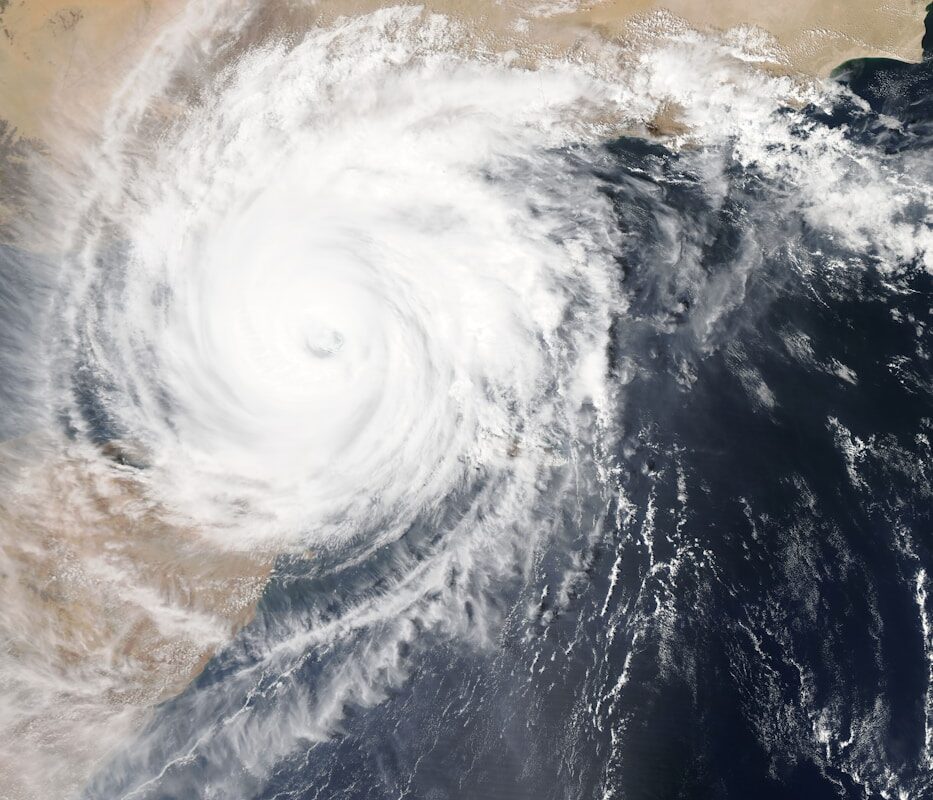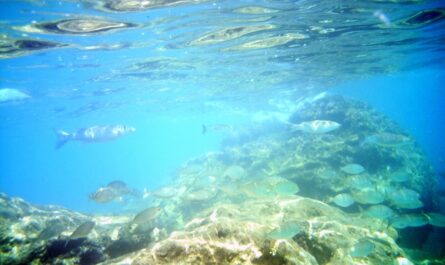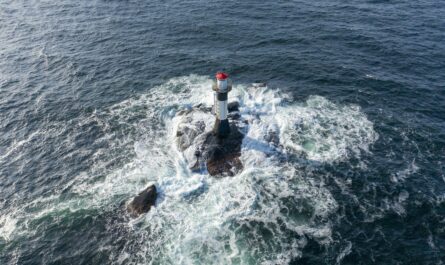The deep ocean has long been regarded as one of the last frontiers on Earth—a vast, mysterious environment where unique ecosystems thrive far from the sunlit surface. Yet, even these remote regions of the Atlantic are not immune to the profound impacts of climate change. In recent decades, increasing global temperatures, shifting ocean chemistry, and altered circulation patterns have begun to reshape the delicate balance of deep-sea life. This article explores how climate change is impacting deep-sea ecosystems in the Atlantic, delving into the science behind these changes, their consequences for marine biodiversity, and the broader implications for human societies.
The Hidden World of the Atlantic’s Deep-Sea Ecosystems
Deep-sea ecosystems in the Atlantic span from the continental slopes to abyssal plains and seamounts. These habitats are characterized by extreme pressure, frigid temperatures, and near-total darkness. Despite such harsh conditions, they are home to a variety of specialized organisms—from bioluminescent invertebrates and resilient fish species to complex communities that rely on chemosynthesis around hydrothermal vents. These organisms have evolved unique adaptations to survive in an environment where food is scarce, and energy inputs are limited.
The deep ocean’s biodiversity plays a critical role in the overall health of our planet. It acts as a major carbon sink, helps regulate global climate, and supports essential biogeochemical cycles. However, the very factors that enable these systems to persist also render them particularly vulnerable to the disruptions brought about by a warming planet.
Climate Change and the Ocean’s Role
Climate change affects the entire ocean, including its deepest parts. One of the most significant impacts is the warming of ocean waters. Although deep-sea temperatures change very slowly compared to surface waters, even minor temperature increases can have dramatic consequences over time. Warmer deep waters may disrupt metabolic processes, reproductive cycles, and the overall balance of species interactions that have evolved over millions of years.
In addition to temperature changes, climate change is altering the chemical composition of the oceans. As atmospheric carbon dioxide levels continue to rise, more CO₂ is absorbed by the ocean, leading to a decrease in pH—a phenomenon known as ocean acidification. Acidification has profound implications for organisms that rely on calcium carbonate to form shells and skeletons, which can ultimately alter the structure and function of entire ecosystems.
Warming Waters and Their Consequences for Deep-Sea Life
While the deep ocean has traditionally been insulated from rapid temperature fluctuations, recent studies indicate that even subtle warming can trigger a cascade of effects. For instance, many deep-sea species are adapted to a narrow temperature range. Even a slight increase in temperature can accelerate metabolic rates, leading to increased energy demands. In environments where food is already limited, these increased demands may result in stress, reduced reproductive success, and, ultimately, population declines.
Furthermore, warming waters can disrupt the stratification of the ocean. Stratification refers to the layering of water based on temperature and density, which in turn affects nutrient distribution. In the deep Atlantic, changes in stratification can alter the supply of organic matter from surface waters—a critical source of energy for deep-sea communities. As nutrient inputs diminish or become more variable, the intricate food webs that sustain these ecosystems can be thrown into disarray.
Ocean Acidification and Its Effect on Shell-Building Organisms
Ocean acidification is one of the most insidious aspects of climate change affecting the deep sea. As CO₂ dissolves in seawater, it forms carbonic acid, which then dissociates into bicarbonate and hydrogen ions. The increased concentration of hydrogen ions reduces the availability of carbonate ions—an essential building block for calcium carbonate structures used by many marine organisms.
In the deep Atlantic, species such as certain mollusks, echinoderms, and foraminifera are particularly vulnerable to acidification. Their shells and skeletons, which provide protection and structural support, become weaker and more susceptible to dissolution. Over time, this can lead to shifts in community composition as acid-sensitive species decline and more resilient organisms, or those with different calcification mechanisms, gain a competitive edge.
Disruption of Ocean Currents and Deep-Sea Nutrient Cycling
Climate change is not only warming the oceans and altering their chemistry—it is also affecting the physical forces that shape deep-sea ecosystems. Ocean currents, driven by temperature gradients and wind patterns at the surface, play a crucial role in distributing nutrients and oxygen throughout the water column. In the Atlantic, large-scale circulation patterns such as the Atlantic Meridional Overturning Circulation (AMOC) are vital for maintaining the health of deep-sea habitats.
Recent research suggests that climate change could weaken these currents, reducing the transport of oxygen and organic matter to the deep sea. A slower or disrupted circulation system means that deep-sea organisms might face oxygen shortages and less frequent delivery of food particles from surface blooms. This reduction in nutrient supply could exacerbate the stress on already vulnerable deep-sea communities, potentially leading to localized extinctions and a reduction in overall biodiversity.
Shifts in Deep-Sea Biodiversity and Species Composition
The combined effects of warming, acidification, and altered nutrient dynamics are causing noticeable shifts in the biodiversity of deep-sea ecosystems in the Atlantic. Species that have thrived under stable, cold, and nutrient-poor conditions are now competing with newcomers better adapted to the changing environment. Such shifts can lead to a loss of endemic species—those found nowhere else on Earth—and the homogenization of deep-sea communities.
Changes in species composition may also affect the ecological functions performed by these communities. For example, the decline of certain benthic organisms can impact sediment stability and the recycling of nutrients. Moreover, invasive or opportunistic species that are more tolerant of variable conditions may colonize these niches, further altering the delicate balance of deep-sea ecosystems.
Implications for the Deep-Sea Food Web
Deep-sea ecosystems rely on a finely tuned food web, where energy is transferred from detritus and marine snow to larger predators. Climate change can disrupt these trophic relationships in several ways. With reduced nutrient input from the surface and a decline in primary production in polar and temperate regions, the quantity and quality of organic matter reaching the deep sea are expected to decline.
This reduction in energy availability can lead to decreased reproductive output among deep-sea species, making populations more vulnerable to environmental stressors. Additionally, altered species interactions can create mismatches in predator-prey dynamics. For example, if a key prey species declines, predators may struggle to find adequate food, leading to cascading effects throughout the food web.
Economic and Societal Implications
Although deep-sea ecosystems may seem removed from human concerns, they have direct and indirect economic and societal impacts. The deep ocean plays a vital role in regulating the Earth’s climate by storing vast amounts of carbon. Disruptions in these processes can exacerbate global warming, further influencing weather patterns and impacting coastal communities.
Moreover, deep-sea ecosystems are an untapped reservoir of potential resources. They hold promise for bioprospecting, including the discovery of novel compounds for pharmaceuticals. As climate change alters these ecosystems, the loss of biodiversity could mean the loss of valuable genetic resources before they are even understood. Protecting deep-sea environments, therefore, is not only a matter of preserving natural heritage but also safeguarding future economic opportunities.
Research, Monitoring, and Mitigation Efforts
The challenges posed by climate change to deep-sea ecosystems call for a multifaceted approach that includes robust scientific research, monitoring, and proactive mitigation strategies. Recent advances in deep-sea exploration technology—such as remotely operated vehicles (ROVs), autonomous underwater vehicles (AUVs), and improved sensor networks—have allowed researchers to gather unprecedented amounts of data from the ocean’s depths.
Scientists are now employing long-term monitoring programs to track changes in temperature, pH, oxygen levels, and species composition. These efforts are critical for understanding the complex interplay between climate change and deep-sea ecosystems. In addition, international collaborations and data-sharing initiatives have become essential in building comprehensive models that can predict future changes and guide conservation efforts.
On the mitigation front, reducing greenhouse gas emissions remains the cornerstone of any strategy to combat climate change. Policies aimed at decarbonizing energy production, improving energy efficiency, and promoting sustainable practices are essential. Additionally, there is a growing emphasis on protecting vulnerable deep-sea habitats through the establishment of marine protected areas (MPAs) and regulations that limit deep-sea mining and other disruptive activities.
The Future of Deep-Sea Ecosystems in a Changing Climate
Looking ahead, the future of deep-sea ecosystems in the Atlantic will depend largely on the actions taken today to mitigate climate change. Without significant reductions in global greenhouse gas emissions, the cumulative impacts of warming, acidification, and disrupted ocean currents are likely to intensify, leading to irreversible changes in deep-sea biodiversity and ecosystem function.
Conversely, if the international community can mobilize to address climate change, there is hope that some deep-sea ecosystems may be able to adapt to new conditions. Adaptive management strategies, combined with targeted research, will be key to enhancing the resilience of these ecosystems. In this context, the preservation of deep-sea habitats is not just about protecting isolated pockets of biodiversity—it is about maintaining the health of the entire planet.
Conclusion
Deep-sea ecosystems in the Atlantic represent a remarkable frontier of life, rich in biodiversity and critical to the overall functioning of our planet. Yet, the far-reaching impacts of climate change—manifested in warming waters, ocean acidification, and disrupted nutrient cycles—pose a severe threat to these hidden communities. The changes observed in species composition, metabolic rates, and food web dynamics underscore the vulnerability of deep-sea life to even the most subtle shifts in environmental conditions.
Addressing these challenges will require a concerted global effort, combining rigorous scientific research, proactive conservation measures, and ambitious policies aimed at reducing greenhouse gas emissions. The fate of the deep ocean is intertwined with the health of the entire Earth, making it imperative that we understand, protect, and adapt to the changes unfolding beneath the waves.
As we continue to explore and study the Atlantic’s deep-sea realms, each new discovery serves as a reminder of the complexity of our planet’s ecosystems and the far-reaching consequences of climate change. The time to act is now—to safeguard not only the mysterious and fragile ecosystems of the deep but also the broader environmental and economic systems that support human life.
By investing in research, establishing marine protected areas, and committing to sustainable practices, we can help ensure that these deep-sea ecosystems persist for future generations. The challenges are great, but so too is the potential for innovative solutions and a renewed commitment to environmental stewardship. The deep ocean, long a symbol of mystery and resilience, may yet be a beacon of hope in our fight against climate change.



